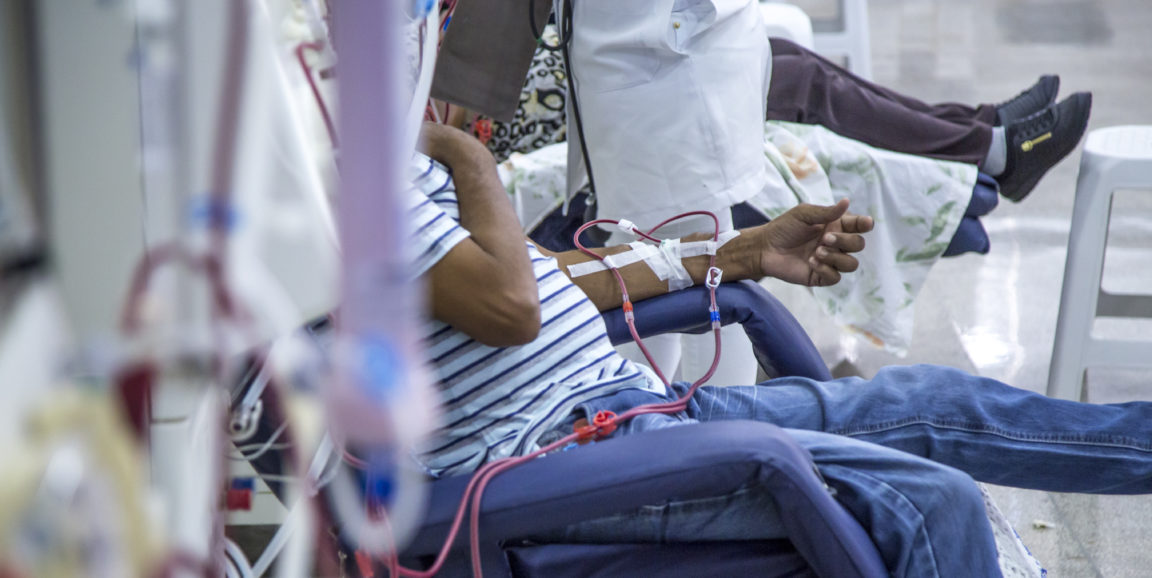Commercially available antibody testing may help determine the risk of breakthrough COVID-19 infections in immunocompromised patients and other high-risk groups, according to a new Stanford-led study.
"This could help inform vaccination schedules and help to motivate high-risk patients to get a booster shot," said Shuchi Anand, MD, an assistant professor of nephrology and the lead author of the study.
The study, which published Dec. 14 in the Annals of Internal Medicine, was conducted in a national cross-section of dialysis patients. Senior authorship of the study was shared by Glenn Chertow, MD, chief of the division of nephrology, and Julie Parsonnet, MD, a professor of medicine and of epidemiology and population health. Chertow holds the Norman S. Coplon/Satellite Healthcare Professorship in Medicine, and Parsonnet holds the George DeForest Barnett Professorship in Medicine.
According to the study, the levels of antibodies -- immune cells produced by the body in response to infections and vaccinations -- that are circulating after SARS-CoV-2 vaccinations wane rapidly in people who are receiving dialysis, and low circulating antibodies are associated with 10 times the risk of breakthrough infection, even after full vaccination.
"In the case of breakthrough infections, hospitalization rates are much higher for immunocompromised groups such as patients with solid organ transplants, or patients with cancer," Anand said, adding that it's crucial to identify people who need heightened protection from the virus.
To evaluate whether low or undetectable antibody levels were associated with breakthrough infections, the researchers ran a series of antibody tests in blood samples from 2,563 dialysis patients from across the country who were fully vaccinated as of Sept. 14.
Optimizing immunizations
Among these vaccinated patients, the estimated proportion of them with an undetectable circulating antibody response increased from 6.6% at 14 to 30 days after vaccination to 20.2% at five to six months after vaccination. Breakthrough infections occurred in 56 patients who all had low or undetectable circulating antibody levels.
"Knowing the strength and duration of antibody response to SARS-CoV-2 vaccination in high-risk groups could help to optimize their immunization schedules," the study said.
Currently, testing for antibody levels is not recommended by regulatory agencies for COVID-19 in the general population in part because measuring antibodies gives only a partial snapshot of the body's entire immune response to vaccinations.
But such testing has been used routinely for patients in some high-risk groups to determine when revaccinations or boosters are needed, the study said. Dialysis patients are often tested for circulating antibody levels after hepatitis B vaccines to determine how soon revaccination is needed. Similar testing has been done for years in women of childbearing age to check the need for revaccination against measles, mumps and rubella, the study said.
"Early on, we saw that our dialysis patients were having sub-optimal responses to vaccination," Anand said. "This study demonstrates a strong link between antibody response to vaccination, circulating antibody titers and breakthrough infections."
Anand has tested some of her patients on dialysis for circulating antibody levels. "I'm hoping low-level responses will help encourage patients to get booster shots," she said.
Photo by mailsonpignata






